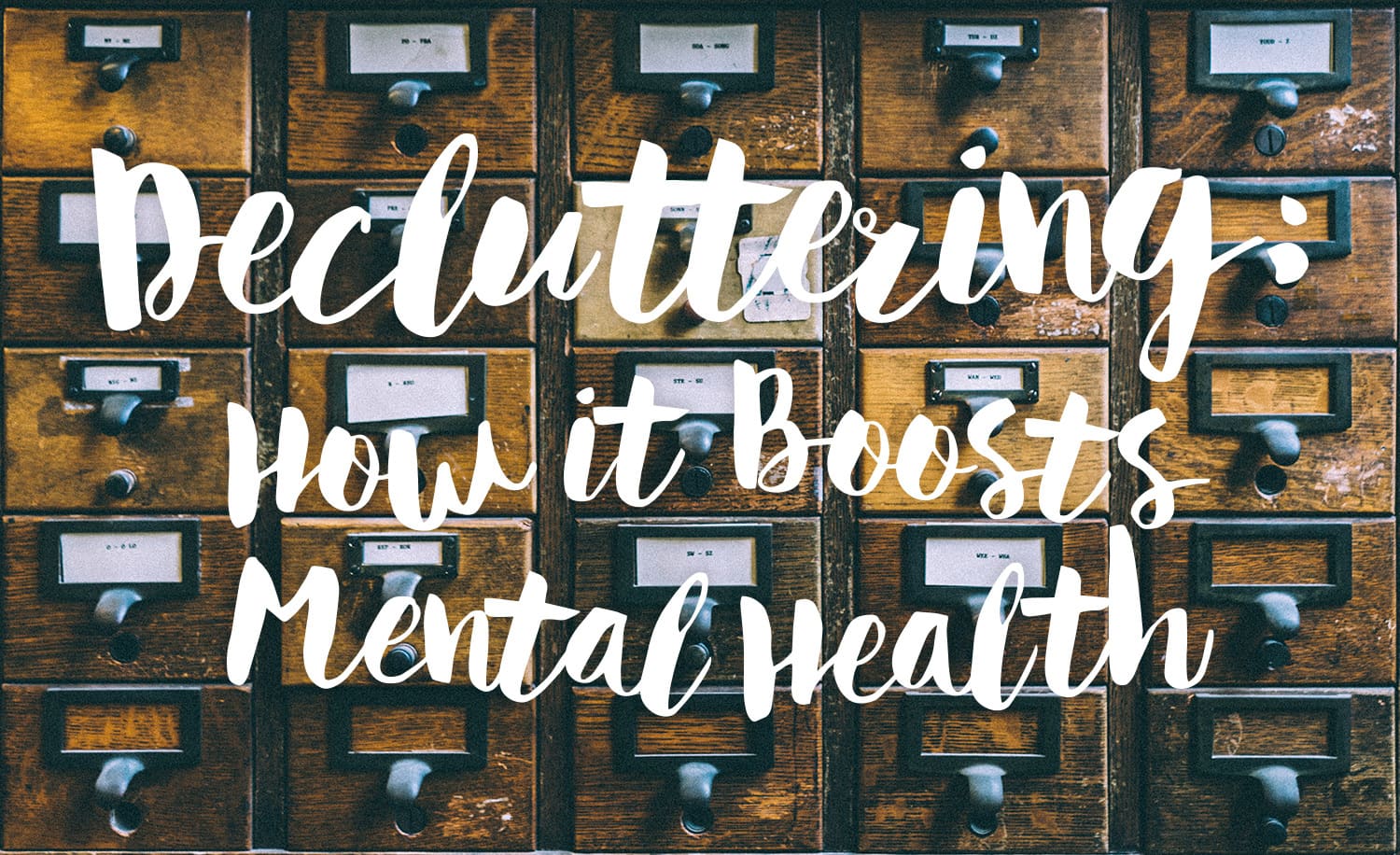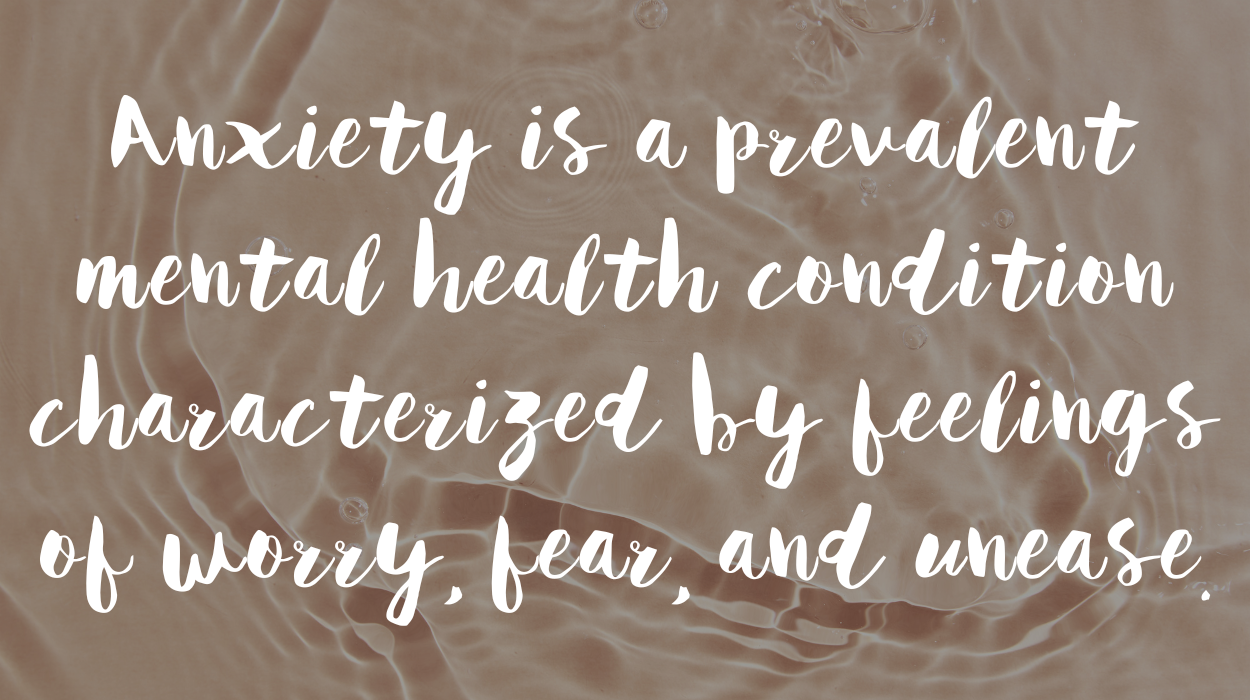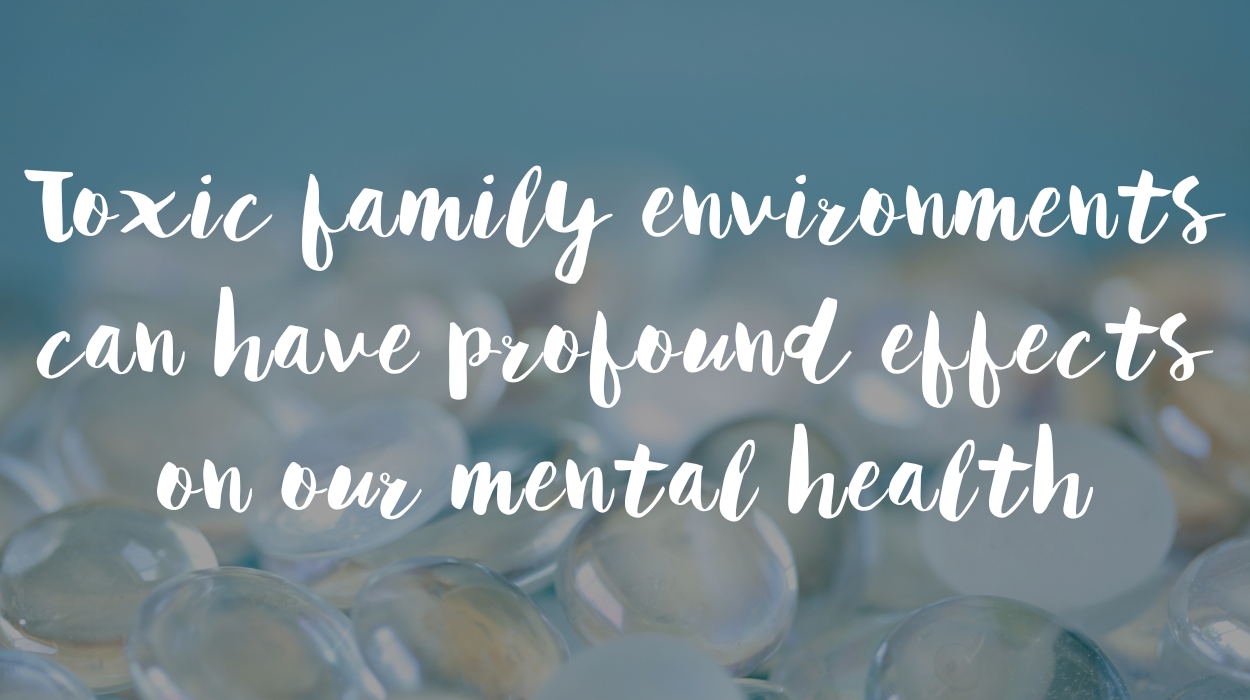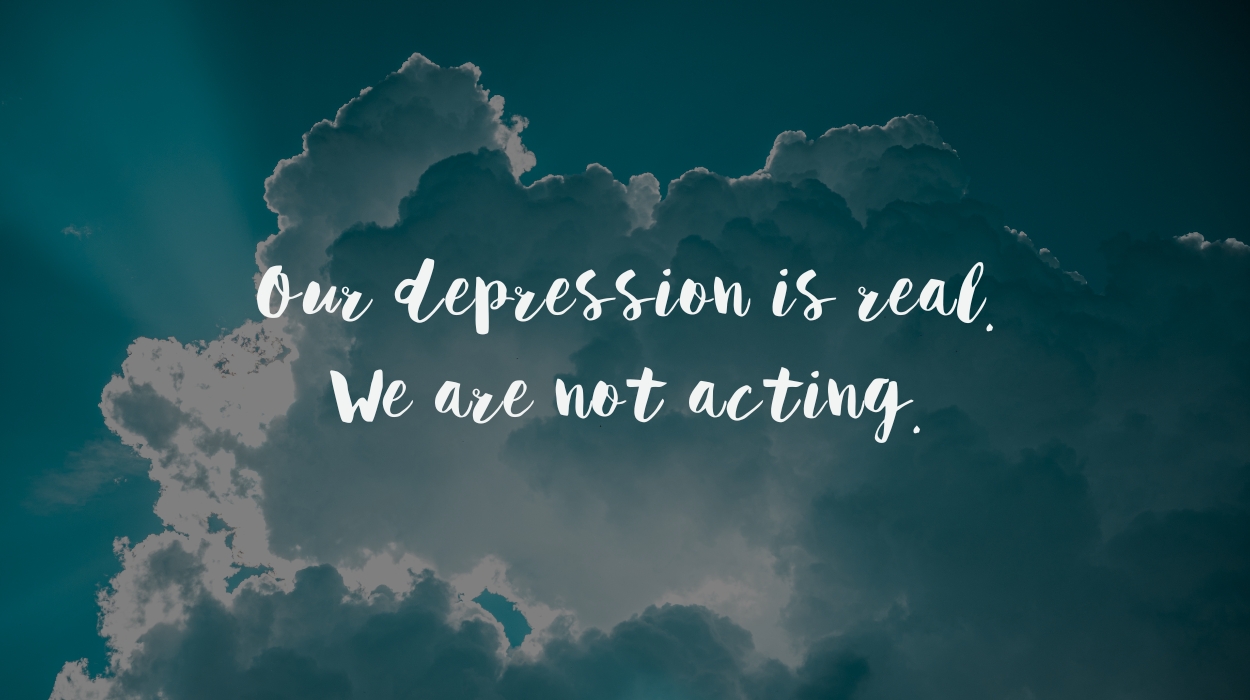Our environment undoubtedly affects our mood. If our surroundings stress us out, take up headspace, or make day-to-day living harder than it needs to be, we feel the impact.
Reducing the ‘clutter’ in our lives – be it physical, digital or otherwise – allows us tackle stressors head-on, which benefits our mental health.
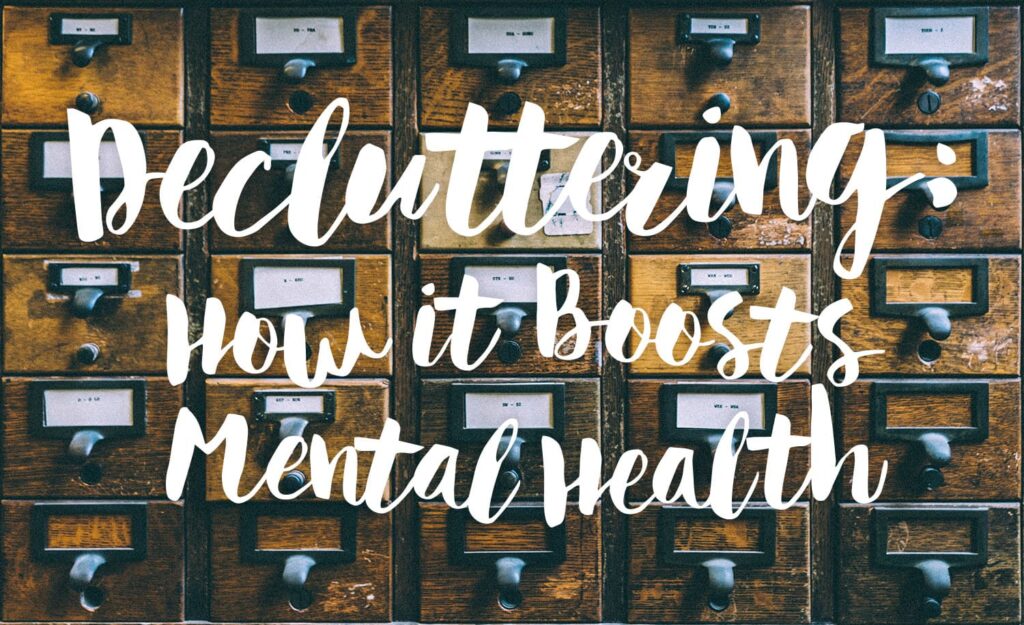
WHAT IS DECLUTTERING?
Put simply, decluttering involves removing, reducing or rationalising things in our immediate environment.
Our ‘clutter’ can be physical – like the items in the junk drawer of doom (we all have one!), digital – like the squillions of unedited photos scattered across our devices, or even emotional – like beliefs or thought patterns that hold us back in life.
If it makes us feel bad, it’s clutter – and even though it might be daunting, it can be tackled.
WHY DECLUTTERING HELPS
We’ve found from our own experience that decluttering can be hugely beneficial to our mental health. It can also be quite addictive! Benefits of decluttering include:
1) Less stress
Clutter can annoy us, distract us or take away much-needed energy.
Little niggles can add up to lots of stress. The underwear drawer that jams cos it’s crammed with odd socks; the tupperware cupboard that spills its contents on the kitchen floor every time you dare to glance at it; the unused software that makes your computer run suuuuuper sloooooooow: it all makes us fume.
Tackling these problems makes our day-to-day considerably easier. And less stress is good for our brains.
2) Boost self-esteem
Sometimes our belongings can make us feel bad about ourselves.
Those ill-fitting clothes hanging in the wardrobe make us feel frumpy or fat (and shouldn’t we be doing something about that?); the piles of paperwork everywhere prove that critical teacher/boss/relative was right – we are hopelessly disorganised; those tatty slippers, threadbare towels, chipped cups – y’know, the stuff that makes your heart sink every time you use it – they reinforce the idea we’re unworthy, that we don’t deserve ‘good things’.
Depression is damaging enough to our self-esteem… we don’t need our belongings ganging up on us too.
3) Letting go
Objects in our home can also unwittingly evoke unpleasant memories or feelings.
The ‘thoughtful gift’ from our mother-in-law that makes us seethe every time we see it; the mixtape from ‘the one that got away’; the top we wore the day we found out about our nan: these objects all hold negative emotional energy that we no longer need.
Decluttering helps us let go.
How #Decluttering Boosts Mental Health
4) Sense of achievement
The idea of decluttering can feel a bit daunting – especially when we’re ill. However, sorting through our stuff can really boost our mood. When we’ve sorted something out we gain a sense of achievement and a feeling of control. We can also feel ‘lighter’ and more optimistic.
5) Karma (or cash!)
Decluttering can provide more tangible rewards too. If you regift unwanted items – say to a friend or your local charity shop – you get that lovely warm feeling inside.
And if you sell stuff on – at a boot sale or on eBay – you get a little bit of extra cash. Win-win!
OUR TOP DECLUTTERING TIPS
Although we understand the benefits of decluttering, many of us feel anxious or overwhelmed when we think about it. If you’d like to give decluttering a go but are unsure how to go about it, this advice may help:
1) You don’t have to do it all at once
It’s best to start small and/or easy, perhaps by pairing those awry socks, or throwing out the tatty slippers. Alternatively, begin with that thing that REALLY bugs you, so you’ll feel the benefit straight away (that’s the tupperware cupboard for us!).
For motivation, you might want to set yourself a time limit – and promise yourself a reward when it’s done (say fifteen minutes of decluttering = fifteen minutes with your favourite magazine). Another super simple approach is to aim to give away, sell or throw out one thing a day – as per the 365 day project.
Remember – Rome wasn’t built in a day. If you find goals and deadlines stressful rather than motivating, don’t use them. Instead, consider your decluttering an ongoing act of self-care.
2) You don’t have to do it alone
A trusted friend or family member might be willing to support you with your decluttering mission. A pair of objective eyes can be really helpful when you’re trying to sort through stuff – and believe it or not some people LOVE doing this kind of thing. (Indeed, if you have a google you will find a whole host of professional declutterers you can pay to assist you!).
If clearing out brings up uncomfortable or overwhelming feelings, you don’t need to deal with them alone. Talk to friends or family, or reach out for help. If you’re in crisis, there are organisations that can help you. You are never alone.
3) Focus on how you feel
If you’re having trouble deciding what to declutter (depression can play havoc with our decision making!), focusing on your feelings can help.
William Morris famously said “have nothing in your houses that you do not know to be useful or believe to be beautiful” , while Marie Kondo – author of the bestselling book ‘The Life-Changing Magic of Tidying Up’ – advises we only keep items that “spark joy” in us. Although we like the idea in theory, we’ve found feelings of joy can be elusive when we’re unwell. For us, focusing on keeping items that DON’T make us feel icky or sad or self-loathing has proved an easier place to start.
Be mindful about items that bring about feelings of guilt or obligation. You don’t have to keep that revolting scarf your step-mum gave you. If you’re not using those kettlebells, stop watching them gather dust: give yourself a break and get rid of them!
CHECK YOUR MOTIVATION
Finally – a word of warning about decluttering itself. If you do decide to start a decluttering project, make sure you’re making that decision from a positive loving place. If decluttering feels like something you should do – rather than something you want to do – you don’t have to do it. If you like living in creative chaos, that’s just great.
Life offers enough stresses: please don’t put unnecessary pressure on yourself. The only thing you ‘should’ be doing, is being kind to yourself.
Sharing is caring: please share this post to help others, you never know who might need it.




